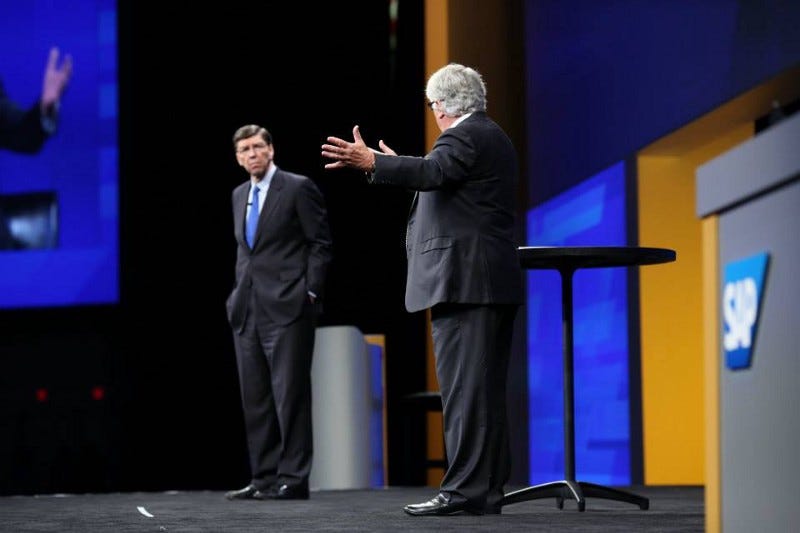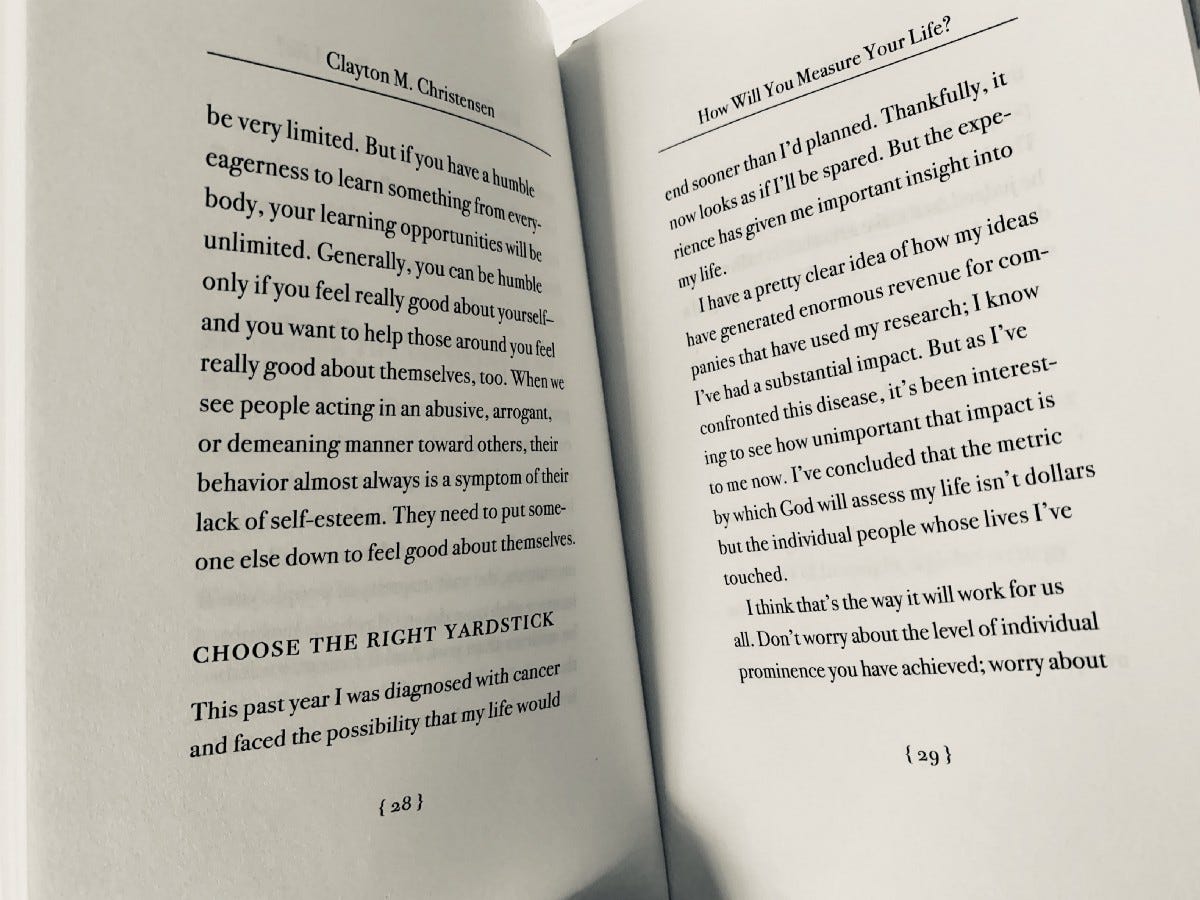Farewell, Clayton!
Prof. Clayton Christensen died last week. It took him just a few words to impact me profoundly. Here is what he said.

I was deeply saddened to learn about Clay Christensen’s death last week. I heard about it on my way back from the World Economic Forum in Davos, where, just a few years ago, Clayton would share his wisdom with the attendees. Clayton Christensen’s ideas have greatly influenced the World Economic Forum community over the past twenty years.
Prof. Clayton Christensen at the World Economic Forum in Davos, 2013
Clayton Christensen was the Kim B. Clark Professor of Business Administration at the Harvard Business School. He introduced the theory of disruptive innovation, which shaped the thinking of business leaders for the past two decades.
Prof. Clayton Christensen’s Theory of Disruptive Innovation as explained by Assoc. Prof. Robert Perrons.
I remember seeing Clayton Christensen at a large SAP conference in the US a few years ago. He was a brilliant speaker and covered the topic of innovator’s dilemma, a topic of his research, so well. But what struck me the most was what happened right after the presentation. When Clay finished, Hasso Plattner, co-founder of SAP and chairman of SAP’s supervisory board, entered the stage and asked Clay: “so, have we managed to overcome the innovator’s dilemma with our new strategy”? To get a full picture of what happened next, let us remember that Clayton was likely paid well for speaking at the event. He was on stage in front of a few thousand employees, clients, and partners of the organisation, all very excited about the future of the business. Hasso, one of the most successful people in the tech world, clearly has a way of getting people to do and say what he wants them to do and say. Still, Clayton did not budge. He did not say “well, I think you’re doing great”, not even “I hope you’re doing great”. He said: “I don’t know, I am not sure”. This might not sound like much, but to me, this was a sign of very strong integrity. I remember Clayton’s words to this day. And even if these are not the very exact words Clayton said from the stage (I failed to find a recording of that speech), this is how I remember him. A scholar, an influential leader, putting his principles and integrity ahead of everything else.

Prof. Clayton Christensen and Prof. Hasso Plattner on stage discussing the innovator’s dilemma.
Clayton wasn’t just a business scholar. He also shared his life philosophy with others. A deeply religious person, Clay always wanted to ensure that his achievements are not only contributing to his growth and prominence but — more importantly — to the wellbeing of others. In his own words: “Don’t worry about the level of individual prominence you have achieved; worry about the individuals you have helped become better people. […] Think about the metric by which your life will be judged, and make a resolution to live every day so that in the end, your life will be judged a success.” Clayton said: “I’ve concluded that the metric by which God will assess my life isn’t dollars but the individual people whose lives I’ve touched.”

Christensen, C. M. (2017). How Will You Measure Your Life? (Harvard Business Review Classics). Harvard Business Review Press.
And just by this one metric, Clayton has lived one of the most impactful, most meaningful lives one can imagine. He has touched the lives of so many of us. His thinking has truly transformed lives around the world.
Like any disruptive innovation would.



